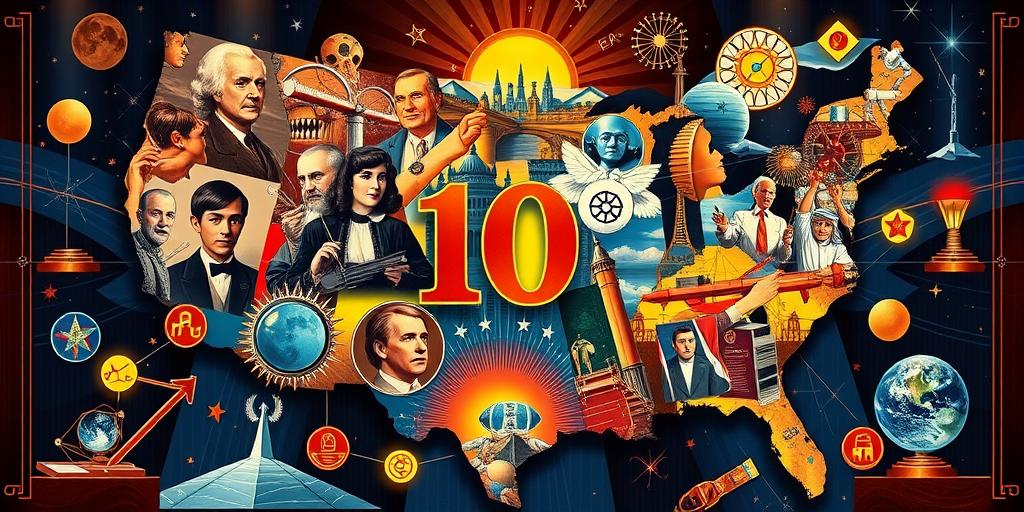Have you ever wondered about the incredible scientific advancements that have shaped our world? Prepare to be amazed! This article dives into 10 groundbreaking scientific discoveries made in America that you absolutely need to know about. From life-altering medical breakthroughs to revolutionary technologies, these discoveries have not only transformed the American landscape but have had a profound impact on the global stage. Get ready to embark on a journey through the fascinating world of American science!
1. The Invention of the Telephone: Connecting the World
Alexander Graham Bell's revolutionary invention in 1876 irrevocably changed global communication. Imagine a world without instant communication. Before the telephone, long-distance communication relied on letters, telegraphs, and face-to-face interactions, which could be slow, costly, and inefficient. Bell's groundbreaking innovation not only revolutionized business and personal communication but laid the groundwork for countless technological advancements in the 20th and 21st centuries. The impact on fields such as medicine, finance, and emergency services has been immeasurable. The telephone's development spurred further innovation, leading to advancements in radio, television, and eventually, the internet. It was a true turning point for society, making the world a much smaller and more connected place. The legacy of Alexander Graham Bell's invention continues to this day, shaping how we interact and communicate on a global scale. Understanding its impact is crucial for anyone wanting to appreciate the technological evolution of human communication.
2. The Discovery of Penicillin: A Medical Miracle
In 1928, Alexander Fleming's accidental discovery of penicillin, the first antibiotic drug, marked a pivotal moment in medical history. Before penicillin, many bacterial infections were often deadly. Minor cuts and scrapes could easily turn fatal. Infections such as pneumonia and meningitis held a high mortality rate. The discovery of penicillin not only revolutionized the treatment of bacterial infections, providing an effective weapon against deadly diseases, but also dramatically improved surgical procedures and other medical treatments. The impact of Fleming's discovery is hard to overstate. Penicillin and subsequent antibiotic developments transformed healthcare worldwide, saving countless lives and altering the course of medical treatment forever. It's a clear example of how scientific discoveries, even accidental ones, can have profound and life-saving effects on humanity. This opened doors for further research in antibiotics and other antimicrobial drugs. This has been crucial in helping save lives against diseases that previously were essentially death sentences.
3. The Development of the Polio Vaccine: Eradicating a Crippling Disease
The development of the polio vaccine in the mid-20th century stands as a testament to the power of scientific collaboration and the dedication of researchers to conquer devastating diseases. Polio, a highly infectious disease that could cause paralysis and death, was a major public health concern before the vaccine's development. Jonas Salk's inactivated polio vaccine and Albert Sabin's live-attenuated oral polio vaccine played an immense role in the eradication of this debilitating disease. The widespread vaccination campaigns that followed led to a significant decline in polio cases around the world. Though polio isn't fully eradicated yet, ongoing efforts, built upon the initial success of these vaccines, continue to bring us closer to that goal. The success of the polio vaccine development highlights the power of scientific research in preventing and eradicating infectious diseases.
4. The Invention of the Transistor: The Foundation of Modern Electronics
The invention of the transistor at Bell Labs in 1947 revolutionized electronics and paved the way for the digital age. Before the transistor, electronic devices relied on bulky and inefficient vacuum tubes, which generated substantial heat, consumed more power, and were prone to failure. The transistor, a semiconductor device with the ability to amplify or switch electronic signals and electrical power, was smaller, faster, more durable, and more energy-efficient. This groundbreaking discovery opened doors for the miniaturization of electronics. From computers and smartphones to medical devices and countless other electronic gadgets, the transistor is the fundamental building block of modern technology. The impact of the transistor on our daily lives cannot be overstated, transforming industries and revolutionizing society.
5. The Human Genome Project: Unlocking the Secrets of Life
The Human Genome Project, completed in 2003, was an international research effort that mapped the entire human genome. This monumental achievement provided an unprecedented understanding of human biology, disease, and evolution. Identifying all genes and their precise locations within the human genome has paved the way for groundbreaking advancements in medicine and personalized medicine. This knowledge has spurred development in various fields, leading to new diagnostic tools, more effective treatments, and even preventive measures for a vast array of diseases. Understanding the human genome has opened up possibilities in many ways and is continually yielding new breakthroughs.
Uncovering the secrets of the human genome is crucial to many fields of medicine. This has revolutionized fields including gene therapy and drug discovery.
Take action today! Discover more about these astounding scientific breakthroughs and share your thoughts in the comments below. Let's celebrate the incredible ingenuity of American scientists!









